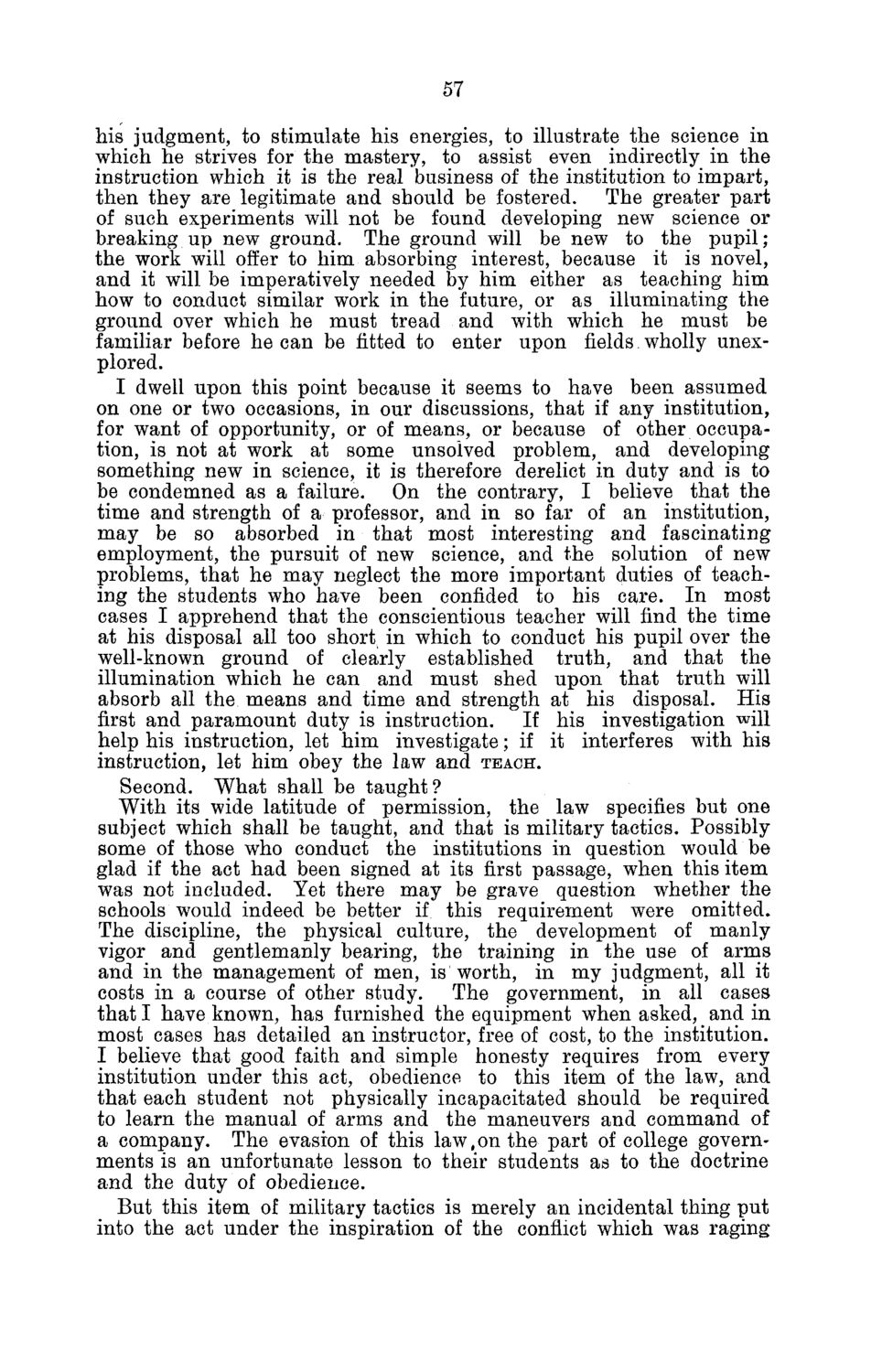| |
| |
Caption: Board of Trustees Minutes - 1882
This is a reduced-resolution page image for fast online browsing.

EXTRACTED TEXT FROM PAGE:
57 his judgment, to stimulate his energies, to illustrate the science in which he strives for the mastery, to assist even indirectly in the instruction which it is the real business of the institution to impart, then they are legitimate and should be fostered. The greater part of such experiments will not be found developing new science or breaking up new ground. The ground will be new to the pupil; the work will offer to him absorbing interest, because it is novel, and it will be imperatively needed by him either as teaching him how to conduct similar work in the future, or as illuminating the ground over which he must tread and with which he must be familiar before he can be fitted to enter upon fields wholly unexplored. I dwell upon this point because it seems to have been assumed on one or two occasions, in our discussions, that if any institution, for want of opportunity, or of means, or because of other occupation, is not at work at some unsolved problem, and developing something new in science, it is therefore derelict in duty and is to be condemned as a failure. On the contrary, I believe that the time and strength of a professor, and in so far of an institution, may be so absorbed in that most interesting and fascinating employment, the pursuit of new science, and the solution of new problems, that he may neglect the more important duties of teaching the students who have been confided to his care. In most cases I apprehend that the conscientious teacher will find the time at his disposal all too short in which to conduct his pupil over the well-known ground of clearly established truth, and that the illumination which he can and must shed upon that truth will absorb all the means and time and strength at his disposal. His first and paramount duty is instruction. If his investigation will help his instruction, let him investigate; if it interferes with his instruction, let him obey the law and TEACH. Second. What shall be taught? With its wide latitude of permission, the law specifies but one subject which shall be taught, and that is military tactics. Possibly some of those who conduct the institutions in question would be glad if the act had been signed at its first passage, when this item was not included. Yet there may be grave question whether the schools would indeed be better if this requirement were omitted. The discipline, the physical culture, the development of manly vigor and gentlemanly bearing, the training in the use of arms and in the management of men, is worth, in my judgment, all it costs in a course of other study. The government, in all cases that I have known, has furnished the equipment when asked, and in most cases has detailed an instructor, free of cost, to the institution. I believe that good faith and simple honesty requires from every institution under this act, obedience to this item of the law, and that each student not physically incapacitated should be required to learn the manual of arms and the maneuvers and command of a company. The evasion of this law,on the part of college governments is an unfortunate lesson to their students as to the doctrine and the duty of obedience. But this item of military tactics is merely an incidental thing put into the act under the inspiration of the conflict which was raging
| |